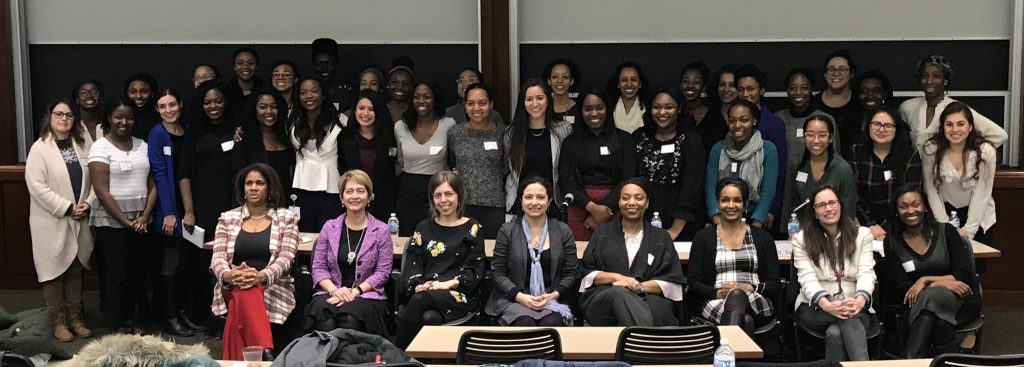
The Black and Latina Women in Medicine event on February 15, 2018 was provocatively titled “Claiming our Space” and brought together a vibrant cohort of women of color at various career stages in the setting of the University of Chicago Pritzker School of Medicine. It was the 2nd annual event of its kind at Pritzker, aiming “to empower and support Black and Latina women in medicine by fostering relationship building and creating an opportunity to learn from the leaders of our growing community,” according to the student organizers.
Six distinguished women of color panelists and one moderator were invited to share their lived experiences that have been meaningful, career-changing, and inspiring in their lives and careers, and also to have honest conversations about things that were less than ideal and how they dealt with negativity or even failure. The speakers came from multiple academic institutions in Chicago, and included MOLA’s president, Dr. Pilar Ortega, for whom going back to give a presentation at the Biological Sciences Learning Center is always a powerful experience, given the countless hours she spent in that very lecture hall as a medical student herself.
All six panelists had different answers for what defined their academic careers, but all spoke to the incredible value of more Latino, Black, and other minorities in academic medicine–including Dr. Monica Vela, Dr. Milda Saunders, Dr. Vietta Johnson, Dr. Monica Peek, Dr. Sandra Sanguino, and moderator Dr. Audrey Tanksely.
Among the insightful and probing questions posed during the event, Dr. Tanksely asked “Have you ever felt that you are not ‘academic’ enough for academic medicine?” To which Dr. Ortega responded, “Yes! It is normal to feel out of place when the rules of academic medicine have historically been written by old white males. But that is precisely the reason why we [black and latina women] must have the courage to question and change the status quo and persevere in academic pursuits.”
People of all races, colors, ethnicities and backgrounds can serve as great mentors, including the so-called older white males, however. The physician panelists agreed that having partnerships, supporters, advisors, and mentors that come from different backgrounds and are in positions of power is often necessary and important for career advancement. Organizations such as MOLA and forums such as this foster a positive environment in which minorities can come together to seek advice and inspiration from leaders who come from similar backgrounds and faced and overcame similar challenges.
In the closing remarks, Dr. Ortega encouraged students that there is “no such thing as a single straight path,” citing her own detours and corollary pursuits in addition to her medical practice, and promoted the importance of more Latinos in academics.
MOLA… it’s time to re-write the rules! We need more Latinos and minorities doing research, education, publishing, asking the right questions, and leading the way in academic medicine.
